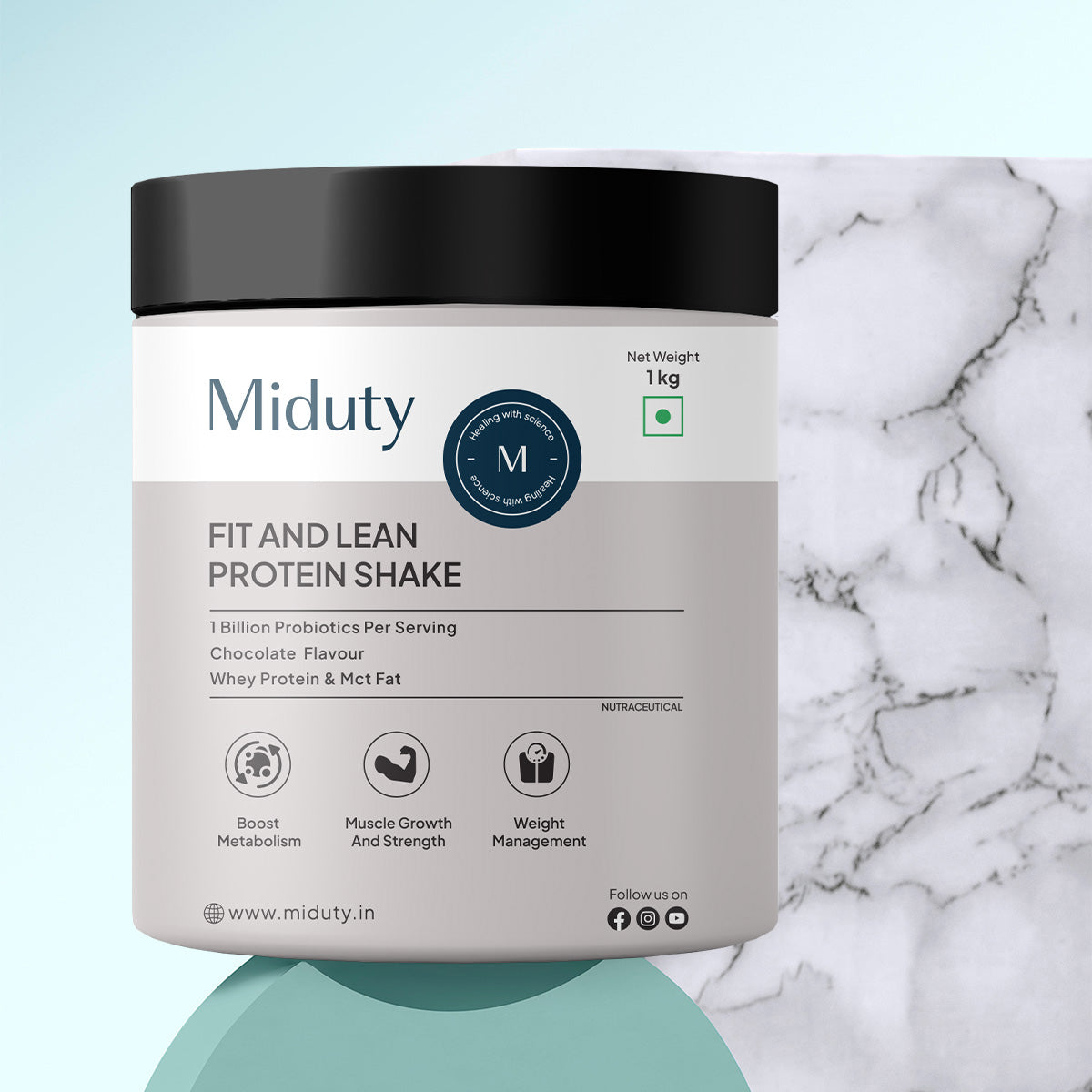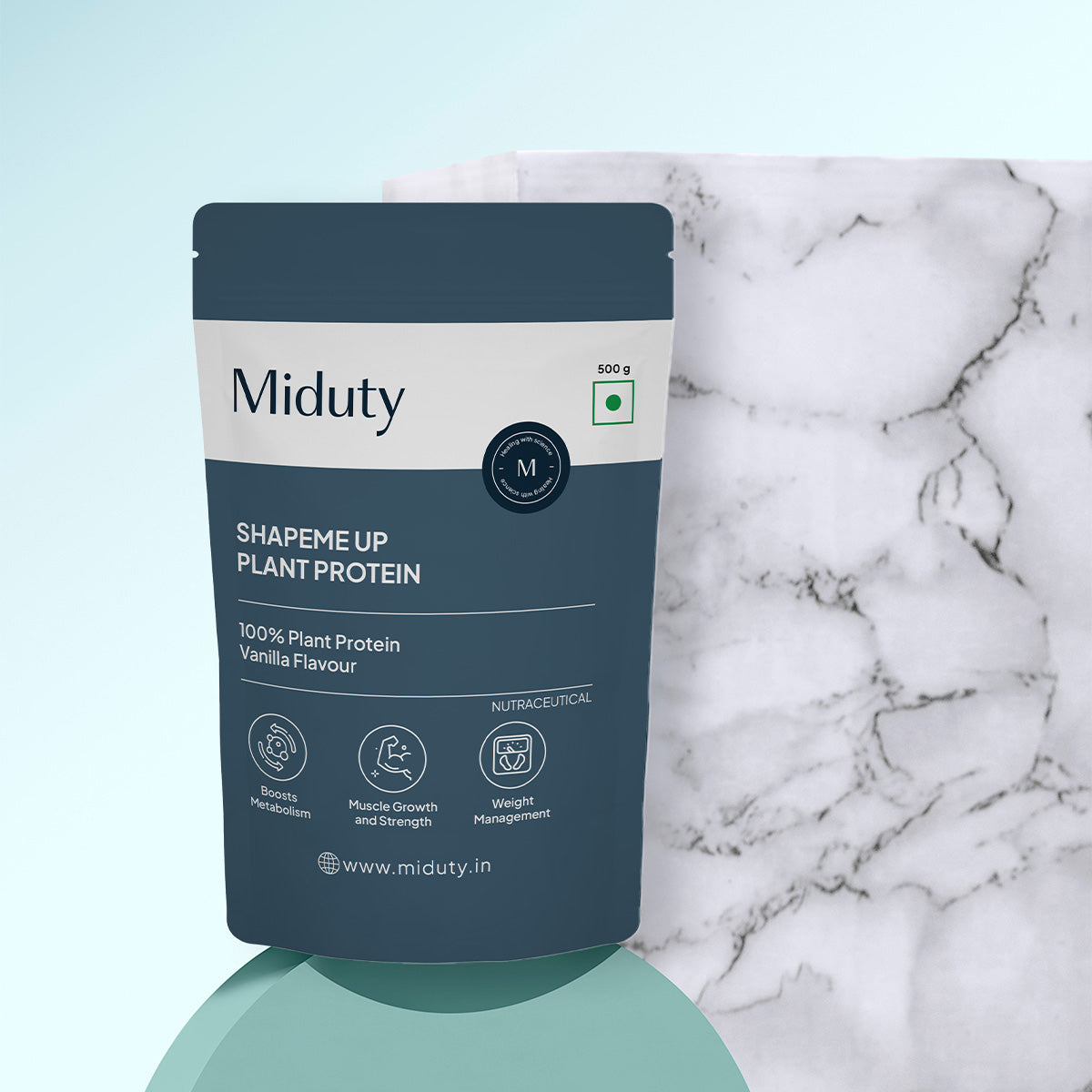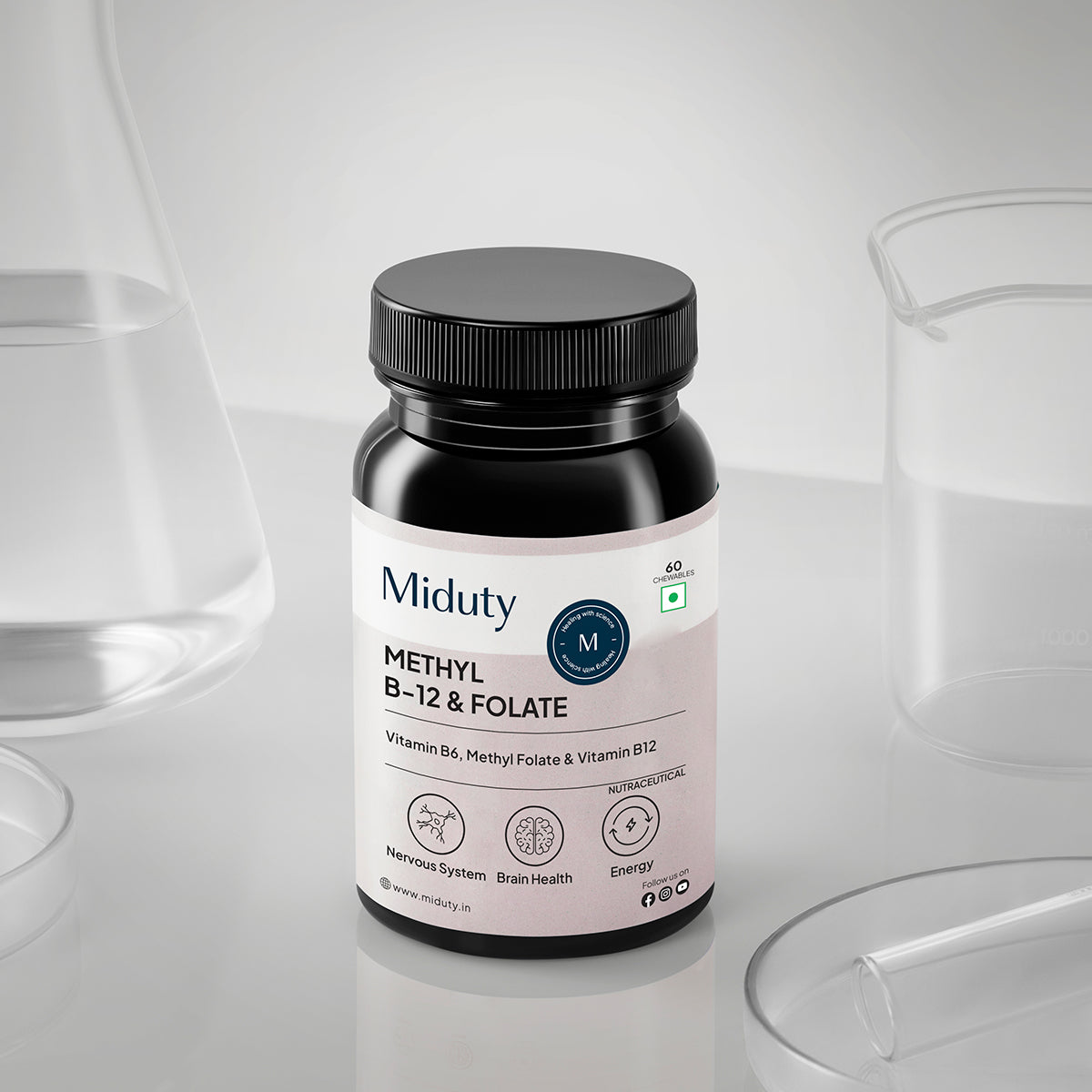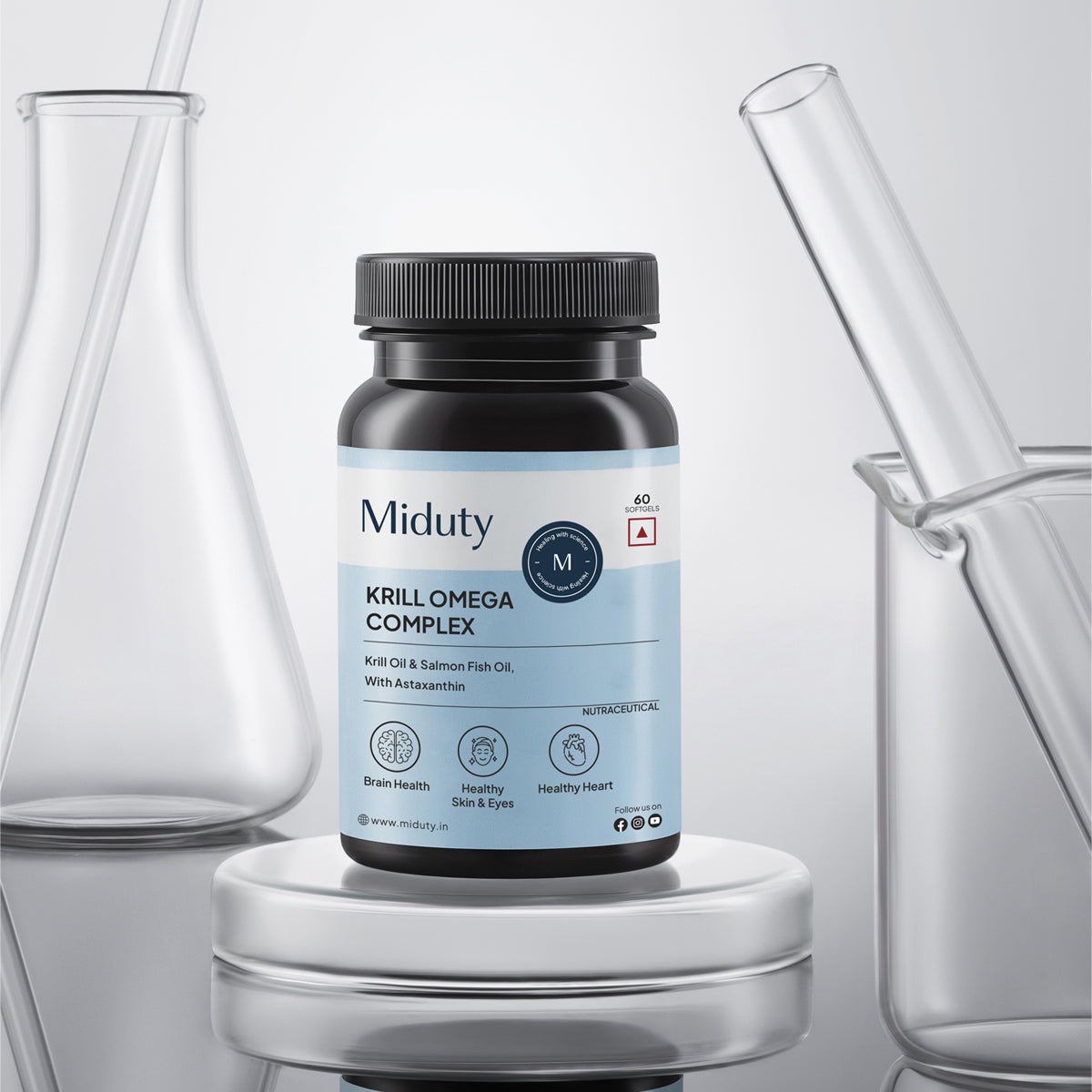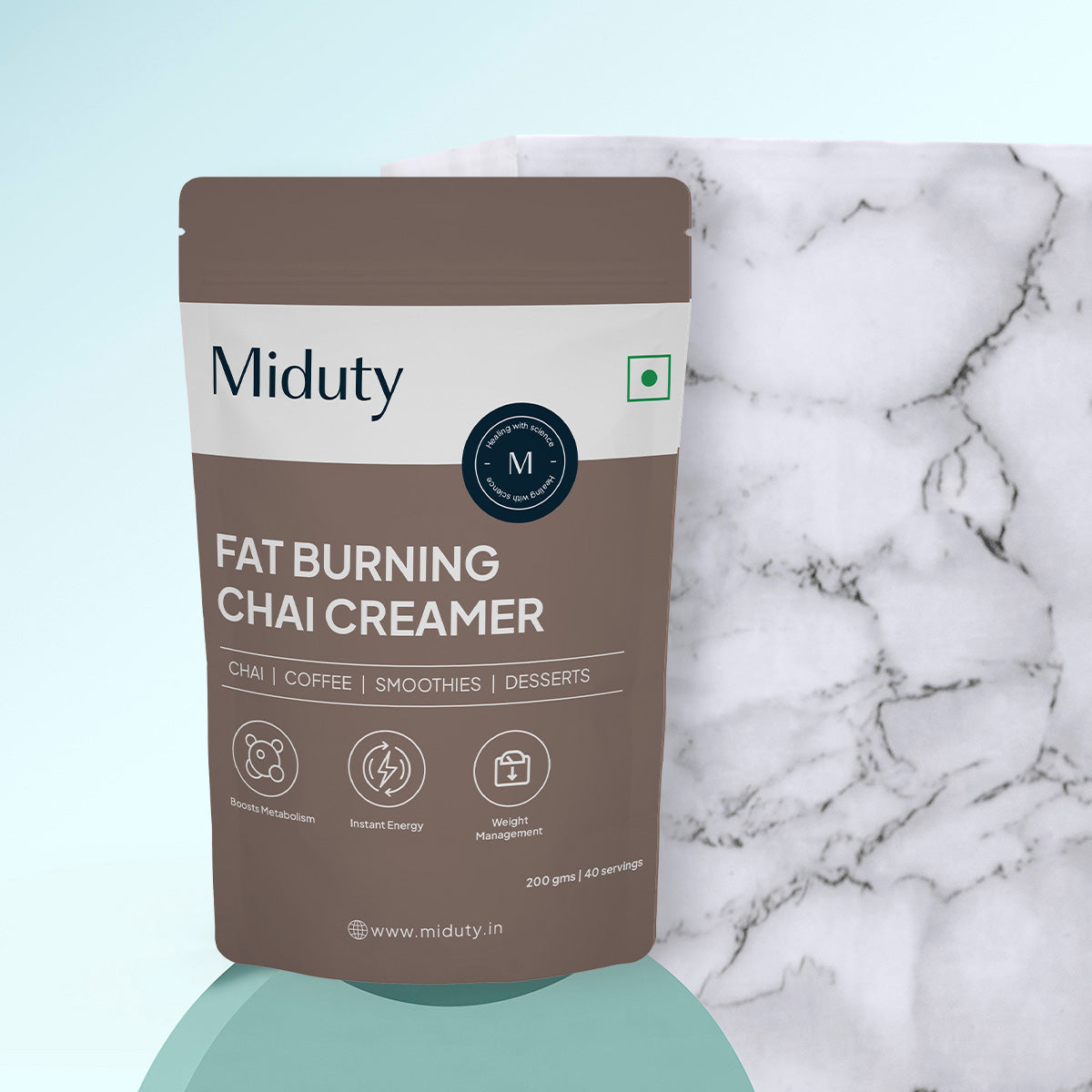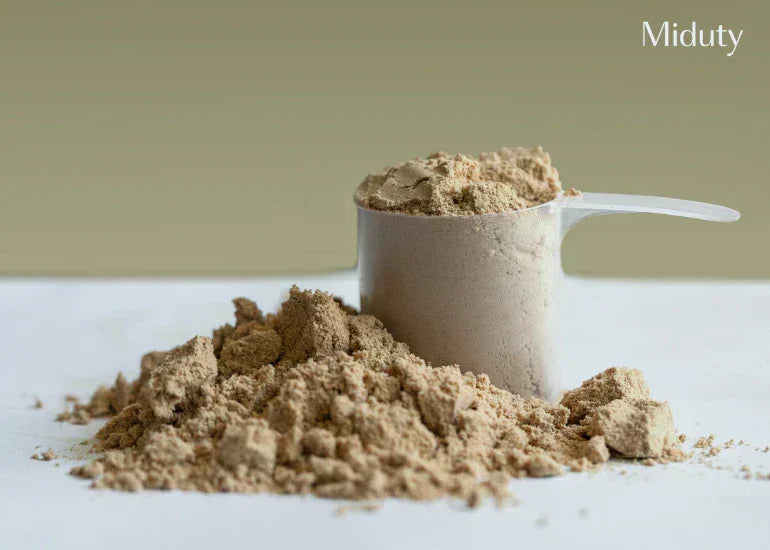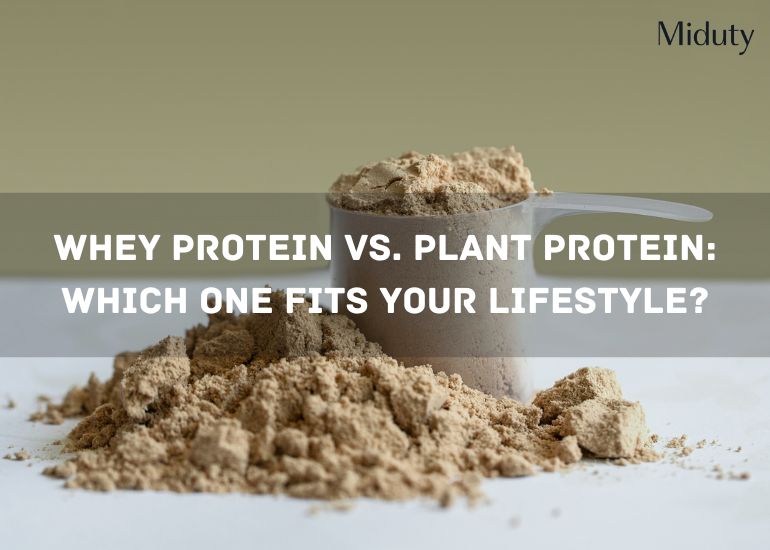
Whey Protein vs. Plant Protein: Which One Fits Your Lifestyle?
Key Insights
1) Whey protein doesn't cause fat gain. It's a low-calorie, high-protein supplement that supports muscle growth and fat loss.
2) Plant proteins like pea and rice protein are naturally rich in nutrients such as iron and fiber, adding more than just protein to your diet.
3) Combining different plant protein sources can replicate the complete amino acid profile found in whey protein.
4) The production of plant protein powders has a significantly smaller environmental footprint compared to whey protein.
5) Whey and plant protein absorption rates differ, making them suitable for distinct fitness goals.
Protein powders are having their moment right now, especially in the gym world.
It seems like everyone serious about their fitness routine is grabbing a scoop of protein after their workouts—whether it's to build muscle, recover faster, or just hit those daily protein goals.
From Instagram influencers to fitness enthusiasts, protein shakes are everywhere, and it's hard not to get caught up in the hype.
But with so many options out there, the real question is: Should you go for whey protein or plant-based protein? The answer depends on your dietary preferences.
To make the best choice for your unique needs, it's essential to understand how they're made, their nutritional profiles, benefits, and even their impact on the environment. This guide dives deep into the differences between whey protein and plant protein, helping you determine which one suits your lifestyle and fitness goals.
What is Whey Protein?

Whey protein is one of the two main proteins found in milk (the other being casein). It is celebrated for its superior amino acid profile and fast absorption, making it a favorite among athletes and fitness enthusiasts. Whey protein powder is often flavored to improve its bland taste. When choosing a product, opt for those without added sugars. Providing 25-50 g of protein per serving, it's a convenient option for fitness enthusiasts, those managing weight, or anyone needing extra protein. Flavored whey protein works well in shakes, bars, or as a meal replacement.
While generally well-tolerated, individuals with lactose intolerance or dairy allergies should use caution. [1]
How Is Whey Protein Made?
The process of making whey protein involves several steps: [2]
- Cheese-Making Process
- Filtration
- Drying
- Processing Levels
Nutritional Highlights of Whey Protein
- Protein Content: Typically provides 24–30g of protein per serving.
- Amino Acid Profile: Complete with all nine essential amino acids, particularly rich in branched-chain amino acids (BCAAs) like leucine.
- Digestibility: Absorbed quickly, making it ideal for post-workout recovery.
Nutrition Facts of Whey Protein
A typical 32 g scoop contains:
- Calories: 113
- Fat: 0.5 g (0.3 g saturated)
- Cholesterol: 5.1 mg (2% DV)
- Sodium: 50 mg (2% DV)
- Potassium: 160 mg (5% DV)
- Carbs: 2 g (1% dietary fiber)
- Protein: 25 g
It also provides 2% of daily iron and 12% of daily calcium. Whey protein is an easy, nutrient-dense way to boost your daily protein intake.
What is Plant Protein?

Plant protein powders are derived from a variety of plant-based sources, including peas, rice, soy, hemp, Amarantha, Quinoa, Spirulina(Seaweed), and seeds. These powders are gaining popularity due to their versatility, sustainability, and compatibility with vegan and allergen-free diets. [3]
How Is Plant Protein Made?
- Protein Extraction
- Drying and Processing
- Blending
Nutritional Highlights of Plant Protein
- Protein Content: Typically provides 18–22g of protein per serving.
- Amino Acid Profile: Individual plant proteins may lack certain essential amino acids, but blends offer a complete profile.
- Additional Nutrients: Contains fiber, antioxidants, and minerals like magnesium and iron.
Nutritional Breakdown of 100 Grams of Plant Protein
As per the USDA, 100 grams of plant protein offers the following nutrients: [4]
- Energy: 370 kcal
- Protein: 77.78 g
- Fat: 5.56 g
- Carbohydrates: 7.41 g
- Fiber: 3.7 g
- Calcium: 74 mg
- Sodium: 963 mg
Whey Protein vs Plant Protein: Who Should Take It?
Whey Protein
Whey protein is highly concentrated and offers 24–30g of protein per serving, making it a great choice for those aiming to meet high protein demands. [5]One should take Whey Protein when:
- You need fast muscle recovery after intense workouts.
- You tolerate dairy and want a proven & highly bioavailable protein source.
- You are focused on muscle building and maximizing performance.
Plant Protein
Plant protein powders typically offer 18–22g of protein per serving. While individual plant proteins might lack certain amino acids, combining sources (like pea and rice) can provide a complete profile. This versatility makes plant protein powders a solid option for those on plant-based diets.
One should take plant protein when:
- You follow a vegan or lactose-free diet.
- You prioritize sustainability and reducing your environmental impact.
- You're looking for added benefits like fiber and micronutrients in your protein source.
Environmental Considerations
Whey Protein
Whey production is resource-intensive, requiring significant water, energy, and land. The dairy industry also contributes to greenhouse gas emissions, making whey protein less eco-friendly.
Plant Protein
Plant protein powders have a smaller environmental footprint. Crops like peas and rice require fewer resources, making plant proteins a more sustainable choice.
Is Plant-Based Protein Better Than Whey Protein?
The question of whether plant-based protein is better than whey doesn't have a straightforward answer—it largely depends on your individual needs, goals, and preferences. Both protein sources have unique advantages and potential drawbacks, making them better suited to different circumstances.
When is Plant-Based Protein Better For Your Health?
1) Hormonal and Autoimmune Conditions: Plant-based protein is ideal for those with hormonal and autoimmune conditions as it reduces inflammation, supports gut health, and balances hormones. It's lower in saturated fats and dairy-free, making it gentler on the body and helpful for managing conditions like PCOS, thyroid imbalances, and autoimmune disorders.
2) Dietary Restrictions: Plant-based protein is ideal for those with lactose intolerance, dairy allergies, or a vegan lifestyle. It provides a high-quality protein source without relying on animal products.
3) Heart Health: Plant-based protein sources are generally low in saturated fats and cholesterol, promoting heart health. Research indicates that swapping animal protein for plant protein can reduce the risk of heart disease, high blood pressure, and elevated cholesterol levels. [6]
4) Digestive Comfort: Plant protein powders are often gentler on the stomach, as they lack lactose and other dairy components that some individuals struggle to digest. [7]
5) Environmental Sustainability: For those prioritizing eco-friendliness, plant-based protein is the clear winner. Its production involves fewer resources and generates a smaller carbon footprint compared to whey protein.
6) Additional Nutrients: Plant protein powders typically include natural nutrients such as fiber, iron, and antioxidants, which support overall health beyond just protein intake.
When is Whey Protein Better for Your Health?
1) Muscle Recovery and Athletic Performance: Whey protein's complete amino acid profile, including high levels of branched-chain amino acids (BCAAs), makes it particularly effective for muscle recovery and growth.
2) Faster Absorption: The rapid digestion of whey protein is ideal for post-workout recovery, as it quickly delivers essential amino acids to muscles.
3) Scientific Support: Whey protein has been extensively researched and proven effective for athletic performance, making it a reliable choice for bodybuilders, athletes, and fitness enthusiasts.
If your goal is to build muscle, recover from intense workouts, and tolerate dairy well, whey protein is likely the better choice. On the other hand, if you value sustainability, have dietary restrictions, or want a protein powder that offers additional health benefits, plant-based protein may be a superior option.
Ultimately, neither is universally "better" than the other—it comes down to aligning your choice with your lifestyle, health goals, and ethical values.
Conclusion
Choosing between whey protein vs plant protein ultimately depends on your health goals, dietary restrictions, and values. Whey protein excels in muscle recovery and strength building, while plant protein offers a sustainable, gut-friendly alternative.
Both options have their unique strengths, and understanding their differences ensures you make the best choice for your lifestyle and fitness journey.
Frequently Asked Questions on Whey Protein vs. Plant Protein
Q1: Which is healthier: plant protein or whey protein?
Plant-based proteins are lower in fat and cholesterol than whey proteins, and they also contain essential vitamins and minerals. This makes them a much better choice for heart health.
Q2: Is plant-based protein beneficial for gym workouts?
While many once believed that animal-based protein was more effective for muscle growth, new research indicates that a vegan diet, rich in protein from sources like nuts and beans, can be equally beneficial.
Q3: Is it safe to consume plant protein on a daily basis?
The best plant-based protein powders often combine multiple protein sources. They can be safely consumed long-term, providing high energy levels, stamina, and immunity, and helping to meet daily protein requirements.
Q4: What are the side effects of consuming whey protein?
Whey protein is generally safe for most adults when consumed appropriately. However, taking high doses may lead to side effects, including increased bowel movements, acne, nausea, thirst, bloating, reduced appetite, tiredness, and headaches.
Q5: Can I combine whey protein with plant-based protein?
Combining two sources of proteins can provide higher levels of essential amino acids than consuming them individually. These proteins are known as complementary proteins. If your goal is muscle protein synthesis (MPS), it is crucial to obtain all the essential amino acids.
References


